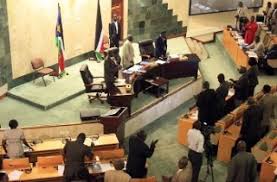South Sudan’s parliament said on Tuesday it opposed a government plan to lift fuel subsidies, a move that will hinder the finance ministry’s efforts to control a swelling budget deficit in the fledgling nation.
The move may be highly welcomed by citizens, but the world’s youngest nation is troubled by a wide fiscal deficit after shutting down some oil fields due to the ongoing civil war.
Oil is the main source of South Sudan’s exports and government revenue as well as a major source of hard currency.
The Speaker of National Legislative Assembly said in a statement after submitting the 2017/2018 budget to President Kiir in Juba yesterday that they decided to reject a proposal to lift subsidies on fuel in a package of economic measures to help bridge the gap.
“The budget had some valuable discussions from the members of parliament. They discussed it extensively and they discussed especially the critical thing was the lifting of the fuel subsidy, so the parliament rejected the lifting of the fuel subsidy in the budget,” he said.
“It was rejected so that it does not bring the burden to our people, so the president is very conscious about that the citizens are suffering,” he added.
In July, South Sudan's minister of finance and economic planning sought parliament’s approval to lift fuel subsidies to allow the government to use what it could save to meet other obligations, including payment of civil servants’ salaries on time.
The current fuel price is fixed at 22 SSP per litter.




